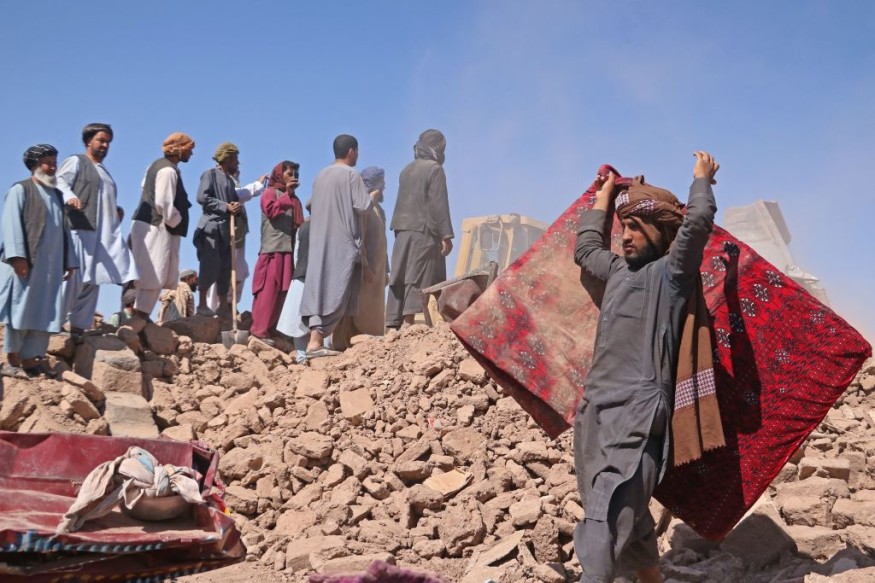Authorities observed that the global response is slow for the victims of the powerful earthquake in Afghanistan.
The fast-approaching winter as well as its combination with the new disaster is likely to exacerbate the existing challenges, which are being experienced in the country.

The 6.3 magnitude quake, which struck on Saturday in 25 miles (40 kilometers) west of Herat city in the western Herat province, left more than 2,000 individuals dead.
Officials said that the recent earthquake was one of the deadliest quakes to hit Afghanistan in recent years. It was last June when a 5.9 magnitude earthquake hit the eastern Paktika and Khost provinces bordering Pakistan.
Casualties
The quake also killed more than a thousand of individuals.
Over the weekend, Taliban spokesman Zabihullah Mujahid placed the number of those killed at 2,053 people, with more than 1,240 people hurt and 1,320 houses completely or partially destroyed.
Officials, however, said that the number of casualties could still increase in the coming days.
Zaman Sultani, Amnesty International's regional researcher for South Asia, said that the office has expressed its deepest condolences to the families who have lost loved ones in the devastating earthquake.
"Amnesty International calls on the Taliban de facto authorities to attend to the immediate and essentials needs of the affected communities and ensure that rescue and relief efforts are carried out without discrimination and in a manner that is compliant with international human rights standards," Sultani said.
According to Sultani, it is critical that all assistance meets the needs of the most at-risks groups in the country, which are often face compounded challenges in crisis situations, including women, children, older persons, and people with disabilities.
Assistance
United Nations spokesperson Stéphane Dujarric said that the UN and its partners in Afghanistan are coordinating with the de facto authorities to swiftly assess the needs of the victims and provide emergency assistance to them.
To support the ongoing efforts for the victims, the UN Humanitarian Coordinator approved a $5 million emergency reserve allocation from the Afghanistan Humanitarian Fund, which OCHA will launch and fully process within 24 hours with eligible partners able to utilize their grants effective 9 October.
Moreover, humanitarian partners will also develop an emergency appeal, the agency disclosed.
Meanwhile, the UN Children's Fund (UNICEF) already deployed more teams to join ongoing humanitarian efforts.
The agency has already dispatched 10,000 hygiene kits, 5,000 family kits, 1,500 sets of winter clothes, blankets, 1,000 tarpaulins, and basic household items, which will complement the support that has been provided by other UN agencies and partners.
"Together with our partners, we will make every effort to bring quick relief to those affected," Fran Equiza, the UNICEF Representative in Afghanistan, said.
The wounded individuals were being treated in nearby health facilities, with emergency drugs provided by UNICEF and partners. The agency also provided emergency tents for overburdened health clinics.
The epicenter of the strong earthquake was about 40 kilometers (25 miles) northwest of the city of Herat, the provincial capital, the US Geological Survey has said.
Several of the aftershocks have been strong, including the one that was experienced on Monday, which again caused residents to rush out of their residences.
© 2025 NatureWorldNews.com All rights reserved. Do not reproduce without permission.





